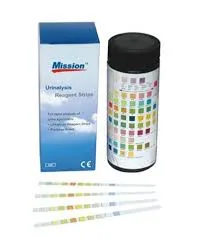Oct . 19, 2024 04:32 Back to list
hcg test paper strip
The HCG test paper strip is a widely used tool for detecting human chorionic gonadotropin (HCG), a hormone that plays a crucial role during pregnancy. This hormone is produced by the placenta shortly after a fertilized egg attaches to the uterus, making it an essential marker for pregnancy confirmation. The convenience and accessibility of HCG test strips have made them popular for both personal and clinical use.
.
The reliability of these test strips is generally high, especially when used according to the manufacturer’s instructions. Most home pregnancy tests can detect HCG at levels as low as 20-25 mIU/mL, which can vary depending on the sensitivity of the specific brand. It’s advisable to take the test after a missed menstrual period for the most accurate results, as HCG levels increase rapidly during the early stages of pregnancy.
hcg test paper strip

In addition to confirming pregnancies, HCG tests can also be employed for monitoring certain medical conditions. For instance, abnormal HCG levels may indicate issues such as ectopic pregnancies or trophoblastic diseases. This makes the HCG test strips not just a home diagnostic tool but also a part of essential medical assessments.
Although HCG test strips are quite accurate, false positives and negatives can occur. Factors contributing to these discrepancies include testing too early, using diluted urine, or certain medical conditions. It’s essential for users to follow the instructions carefully for the best results. If there is uncertainty regarding test outcomes, medical consultation is recommended.
In summary, HCG test paper strips serve as an effective and convenient way to determine pregnancy and monitor hormonal health. Their easy-to-use design allows for quick results, helping individuals make informed decisions about their reproductive health. As technology advances, these tests are expected to become even more sophisticated, providing users with greater accuracy and reliability. Overall, HCG test paper strips embody a significant advancement in home testing, empowering individuals with the ability to take charge of their health with confidence.
-
Reliable Early Pregnancy Test Kit Supplier - Multi Plastic Cassette Options
NewsJul.30,2025
-
Transferrin Rapid Test Cassette – Reliable Tumor Marker Detection
NewsJul.29,2025
-
Accurate Follicle Stimulating Hormone Test Kit | Rapid Reliable Results
NewsJul.29,2025
-
High Accuracy LH Ovulation Test Kit - Digital Results & Wholesale Options
NewsJul.29,2025
-
HbsAg Blood Rapid Test Kit for Fast & Accurate Hepatitis B Detection
NewsJul.28,2025
-
Sterile Urine Cup for Safe & Easy Collection | High-Quality Specimen Cups
NewsJul.28,2025

